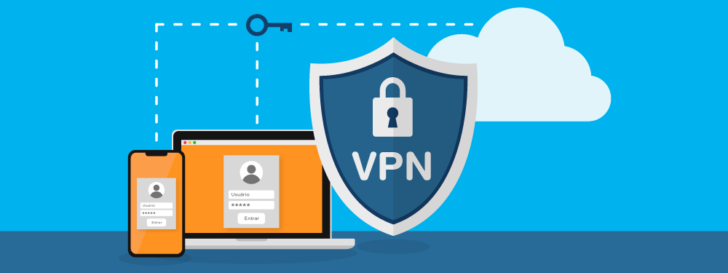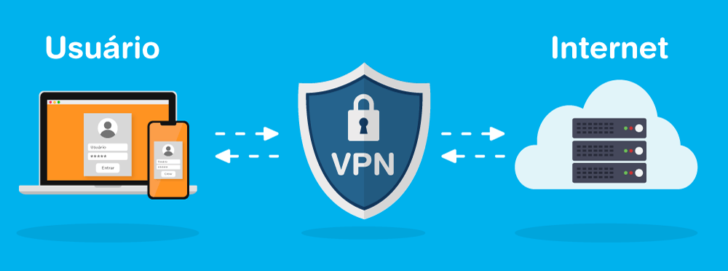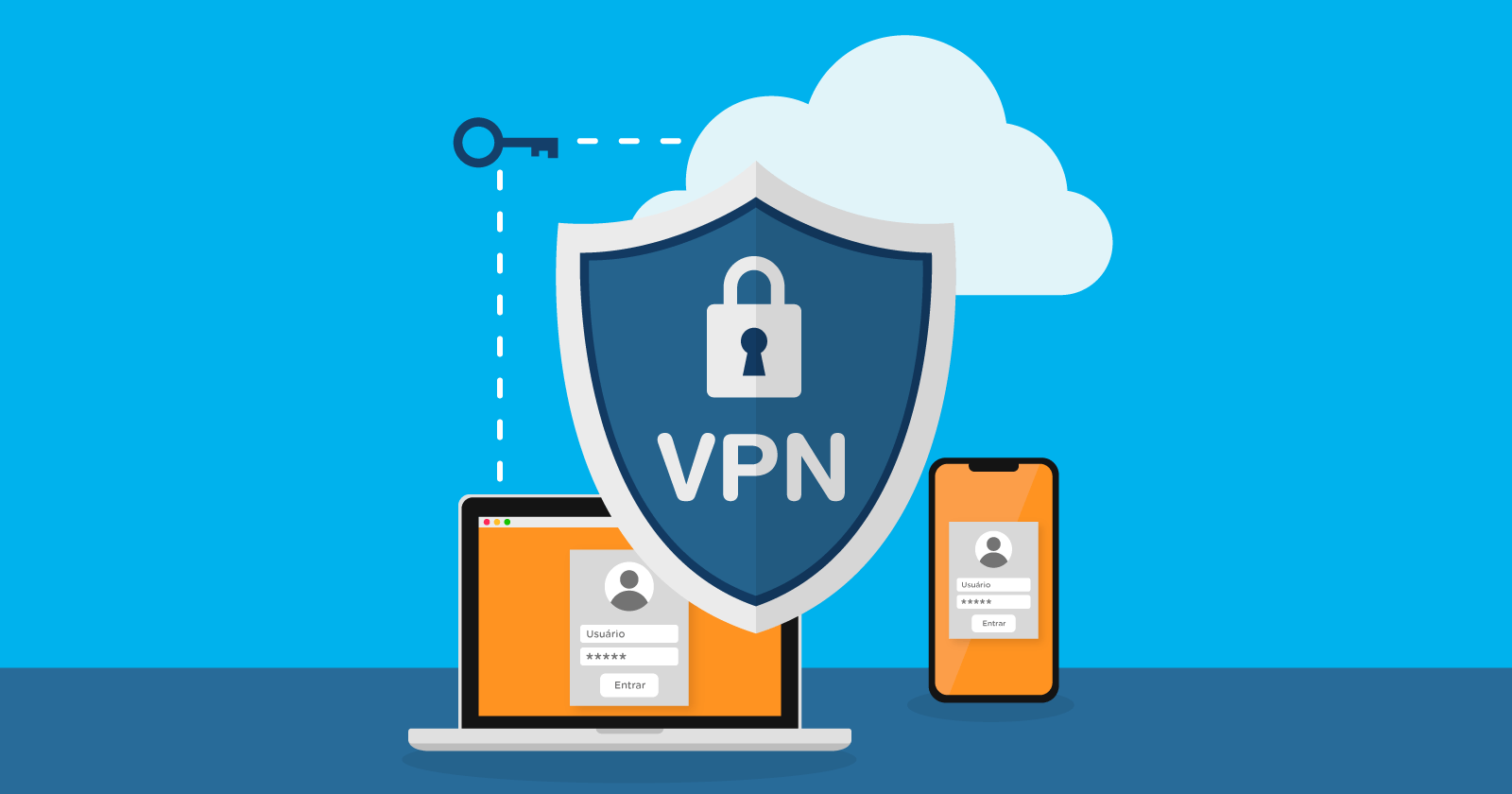

When using the internet, privacy is an expectation, but almost all online activities can be monitored by various parties, such as internet providers, advertisers, or government agencies, as seen in the case of the US government surveillance exposed by Edward Snowden.
The awareness that our online actions are under surveillance can be unsettling for everyone, regardless of their involvement. The potential online frauds and thefts of personal data frequently highlighted in the media are not mentioned.
A VPN operates within the realm of privacy and online security.
In this article, I will define VPN and discuss its uses and recommended scenarios.
What does VPN stand for?
A VPN is a security system that enhances data protection online by encrypting internet traffic and concealing the user’s IP address.
This additional level of security is especially useful in certain scenarios, like circumventing content limitations, browsing incognito, safeguarding personal information from interception, and more. These topics will be explored in greater depth later in this article.
What is the purpose of a VPN?
A VPN enhances privacy and online security by preventing internet providers and network administrators from tracking the websites and applications you use while browsing from home or work.
A VPN enables you to bypass specific content restrictions, particularly those related to geographic location. This functionality can be utilized in various ways, such as accessing content limited to specific regions. For instance, one common scenario is accessing the Netflix movie library restricted to the United States. Another example includes countries like China that impose restrictions on accessing certain content, such as blocking Google. A VPN can circumvent these limitations by concealing the request’s source and destination.
VPN safeguards the security of data shared between users and non-HTTPS websites, offering protection beyond the encryption provided by the HTTPS protocol.
It is more challenging to determine if apps downloaded from app stores like Apple Play Store or App Store utilize encryption when it comes to application usage. Using a VPN on your mobile device provides reassurance that your data will not be intercepted while using apps.
Using a VPN can make your data and traffic unreadable to hackers or network administrators, even when using public wifi in places like airports, hotels, malls, and cafes.
Using a VPN can also shield your users from the risk of having unwanted malware or apps installed on their devices while using public wifi services.
In conclusion, a VPN functions to:
- Enhance your online privacy and security.
- Avoid specific content restrictions, particularly those that are determined by geographic location.
- Ensure the safety of data shared between users and websites that do not utilize HTTPS.
- Make sure that data will not be intercepted when installing and using mobile apps.
- Ensure safety when using public wifi and avoid the installation of undesired malware or applications on your devices.
Discover the top VPNs for Brazil before hiring one.
How does a Virtual Private Network operate?
Using a VPN can differ based on certain factors and configurations, typically depending on the intended usage. I’ll describe how a VPN operates when utilized for personal or professional reasons, which can be easily obtained and set up through different service providers available in the market.
Enabling a VPN establishes an encrypted connection between your device and the VPN server, acting as a secure intermediary for user requests and data traffic to websites or applications. This encryption ensures that all data, including that sent from your device to the VPN, remains unreadable to outside parties.
Upon reaching the destination server, the data packet is deciphered, allowing for communication comprehension and response transmission. Internet browsing involves both receiving requests and sending responses. Despite the decryption process, websites and applications cannot pinpoint the true source of the requests, as they appear to originate from the VPN server used by the user.
The VPN provider must set up its servers to encrypt and direct user traffic to the intended destination, typically using protocols like OpenVPN, which balances speed and security. Other protocol options may also be offered by VPN providers.
To help explain the functioning of a VPN, refer to the image provided.


A VPN acts as a middleman between the user and their destination, and factors like server location, encryption type, and bandwidth from the VPN provider can impact navigation speed. It is important to consider these factors when selecting a VPN service.
Using a VPN in real life involves having access to the service and installing an application on your device, which most VPN providers make easy with simple configuration programs for various devices.
Setting up the VPN on the router may require additional effort compared to other methods and may be less straightforward for the average user. However, it offers the benefit of extending protection to all devices connected to the local network.
When should I utilize a VPN?
A VPN is beneficial for individuals seeking increased privacy and security for their online activities.
- Encrypt and conceal your online activity in both public and private networks, such as airports or public WiFi, as well as your home or workplace.
- Access restricted websites and services in educational institutions, workplaces, or specific nations.
- Conceal your online activity from your internet service provider.
- Do not show personalized advertisements based on your browsing history (only a limited number of VPN services provide this option).
- Shop online with increased security, particularly when using public networks.
- Protect your personal information when using specific websites, like social media platforms.
- Get around limitations on data transfer set by specific providers.
While a VPN can enhance anonymity, it’s crucial to note that it is not a foolproof method. Certain situations, such as logging into accounts like Gmail or social networks, can still lead to the identification of user behavior online, even when using a VPN.
VPN Categories
Free VPN services are usually less secure compared to paid VPNs because they may resort to using personal data and browsing information as a form of payment. It is not advisable to use free VPN services due to the potential risks involved.
In addition to the service fee, there are different categories of VPN available.
VPN for personal use
A personal VPN establishes a secure and private connection between the user’s device and the service provider, allowing the user to browse the internet securely. It is the most popular type of VPN globally and is available at reasonable prices for the general public.
Remote Access Virtual Private Network
A remote access VPN enables users to securely connect to a specific private network, like a corporate network, from a remote location using encryption. This VPN type is commonly utilized by organizations that need to safeguard sensitive data on an internal network while allowing remote access for off-site users.
Site for VPN
A site-to-site VPN operates much like a remote access VPN but with the ability to securely connect separate and physically distant networks in order to exchange information. This option is typically favored by large companies looking to link local networks across various regions and even countries.
VPN and staying anonymous online
Using a VPN can significantly enhance browsing security and safeguard data traffic in multiple ways, but it’s crucial to note that VPN usage doesn’t make you entirely anonymous online.
Despite the encryption and masked origin of a VPN connection, there are alternative methods to identify and pinpoint specific information, as highlighted in the article.
When selecting a VPN service, it is crucial to be aware that the provider might collect and retain users’ personal data and online activities if it is unsuitable. It is advised to avoid free VPNs and thoroughly investigate the reputation, privacy policy, and user feedback of paid VPN services before making a decision.
I trust that I’ve clarified the concept of VPN and its purpose for you. If you have any inquiries, feel free to leave a comment, and I’ll strive to assist you.
Rank the top VPNs for Brazil while you’re here.
Publication date: 29/08/2022 (last modified on 07/06/2023)
Concepts, Tools, SSL are the tags associated with the text.


